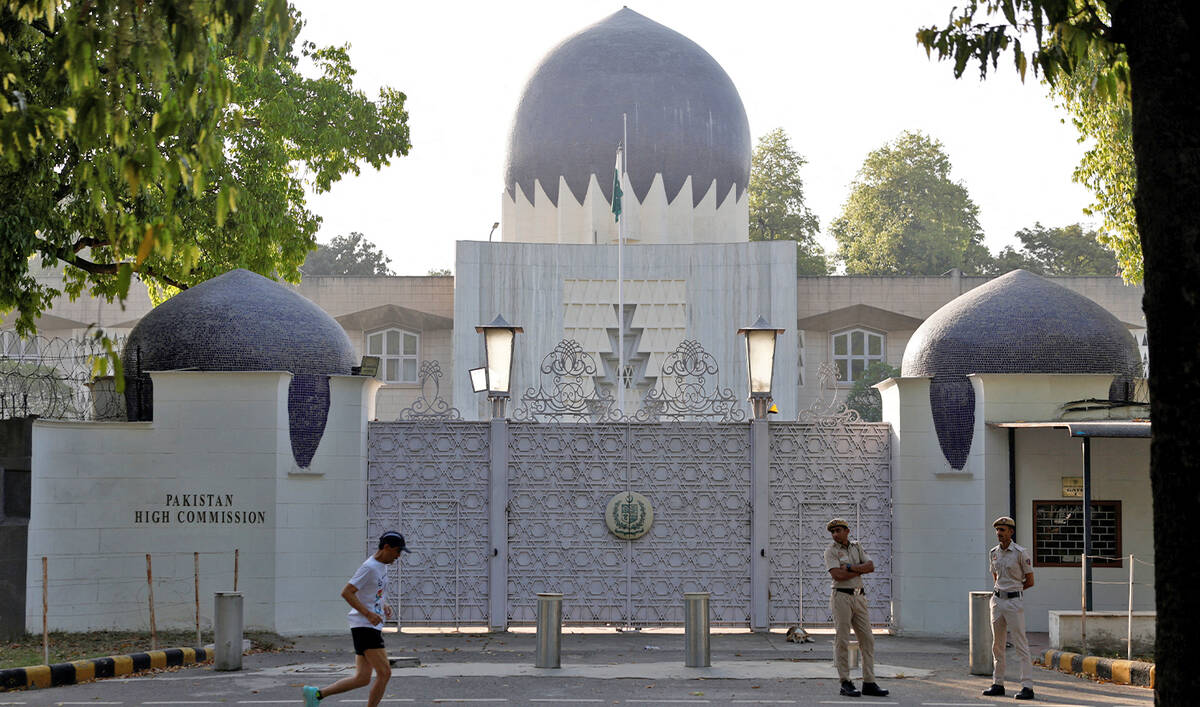ISLAMABAD: Pakistan convened a meeting of its National Security Committee (NSC) while Indian Prime Minister Narendra Modi has called for a meeting with all opposition parties on Thursday, as relations between the nuclear-armed rivals plummeted following a deadly militant attack in Kashmir.
On Tuesday, gunmen killed 26 men at a tourist site in the Pahalgam area of Indian-administered Kashmir in the worst attack on civilians in the country in nearly two decades. Speaking to media on Wednesday evening, Indian Foreign Secretary Vikram Misri said there was cross-border involvement in the attack and New Delhi would suspend a six-decade-old river-sharing treaty as well as close the only land crossing between the neighbors.
India would also pull out its defense attaches in Pakistan and reduce staff size at its mission in Islamabad to 30 from 55, Misri said.
India has summoned the top diplomat in the Pakistan embassy in New Delhi, Indian media reported on Thursday, to give notice that all defense advisers in the Pakistani mission were persona non grata and given a week to leave, one of the measures Misri announced on Wednesday.

A man jogs past policemen standing outside the gate of Pakistan High Commission in New Delhi, India, on April 24, 2025. (REUTERS)
In Islamabad, a meeting of the National Security Committee began on Thursday afternoon to finalize the country’s response to New Delhi’s escalatory actions.
“The meeting will be attended by senior civil and military leadership to deliberate upon internal and external situation arising after the Pahalgam false flag operation,” state-run Radio Pakistan reported, implying that the attack was committed by India itself with the intent of disguising the actual source of responsibility and pinning blame on Islamabad.
Ahead of the meeting, Pakistan denounced India’s suspension of the Indus Waters Treaty as an act of “water warfare,” with Pakistan’s Power Minister Awais Leghari writing on X:
“Every drop is ours by right, and we will defend it with full force — legally, politically and globally.”
The Indus water treaty, mediated by the World Bank and signed in 1960, split the Indus River and its tributaries between the neighbors and regulated the sharing of water. It had withstood two wars between the neighbors since then and severe strains in ties at other times.
The treaty is critical for Pakistan, a lower-riparian state whose food security and agricultural productivity depend on consistent access to these waters, especially as the country faces worsening climate vulnerability and erratic monsoon cycles.
“ENDS OF THE EARTH”
Diplomatic relations between neighboring Pakistan and India were weak even before the latest measures were announced as Pakistan had expelled India’s envoy and not posted its own ambassador in New Delhi after India revoked the semi-autonomous status of Kashmir in 2019.
India and Pakistan control separate parts of Kashmir and both claim it in full.
India has often accused Pakistan of involvement in an insurgency in Kashmir, but Islamabad says it only offers diplomatic and moral support to Kashmiris in their struggle for self-determination.
Tens of thousands of people have been killed in Kashmir since the uprising began in 1989, but it has tapered off in recent years and tourism has surged in the scenic region.
Police in India’s Kashmir published notices on Thursday naming three suspected militants “involved in” Tuesday’s attack and announced rewards for information leading to their arrest.
Two of the three suspected militants are Pakistani nationals, the notices said.
Modi, in his first speech since the attack in the Himalayan region, vowed on Thursday to punish all those responsible.
“I say to the whole world: India will identify, track and punish every terrorist and their backer,” the Indian prime minister said. “We will pursue them to the ends of the Earth.”
– With inputs from Reuters






















